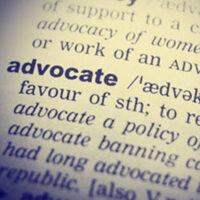Common Myths That People Fall For In Regards To Criminal Law

If you are not a criminal attorney or another kind of criminal law expert, you can expect criminal law to be confusing and complicated. When gathering information about criminal law, people turn to friends, the internet, and sometimes even T.V. shows. Regrettably, some of the information collected from these sources is not always correct. Laws are constantly changing. Therefore, only an expert such as a lawyer can share with you accurate information regarding criminal law.
When searching for information from others, the internet, or T.V. shows, it is not uncommon for people to come across myths. Unfortunately, distinguishing myths from facts is not easy. If you have gotten into trouble with law enforcers or know someone who has, it is essential that you have the correct information. Also, it doesn’t hurt for you to have accurate information even if you haven’t had a run-in with the law or don’t know someone who has, as this information might come in handy one day.
Below, we debunk three prevalent myths that people often fall for in regards to criminal law.
Myth #1: If Law Enforcers Don’t Read Your Miranda Rights, Your Statements Can’t Be Used Against You and Your Criminal Case Will Be Dropped Automatically
Often people assume that if a police officer doesn’t read them their Miranda rights, anything they say can’t be used against them in court; therefore, their criminal charges will be dropped automatically. The truth is, police officers only have a legal obligation to read you your Miranda rights upon arrest and if they intend to interrogate you. Before an arrest, it is generally up to you to know that you have these rights. Therefore, anything you say before an arrest can still be used against you in court. On the other hand, if an officer arrests you and goes ahead to interrogate you without reading the Miranda rights, any incriminating statements you make may be subject to exclusion from the court if you end up going to trial. Nevertheless, your case can continue even after the court throws out your statements.
Myth #2: Failure To Testify Means You Are Guilty
More often than not, accused individuals don’t testify in criminal trials because the U.S. Constitution offers defendants protection against self-incrimination. Therefore, failure to testify does not equal guilt. Courts need to prove guilt without relying on defendants. Even though a jury might suspect you if you don’t testify, jury members cannot use your failure to testify to conclude that you are guilty. Jury members need to rely on other factors to determine innocence or guilt.
Myth #3: When Pleading Guilty, You Don’t Need a Lawyer
This is one of the most harmful myths you can fall for. Before accepting a plea bargain, you must determine that it is the best offer. To ensure you settle for the best plea deal, you need to work with a criminal defense attorney. An attorney can help you get a reduced sentence or have your criminal charge reduced to a lower one.
Contact Us for Legal Help
If you need to know more of the myths to avoid believing when it comes to criminal law or assistance with your criminal case, contact skilled NYC criminal defense attorney Mark I. Cohen., Esq. at 917-414-8585 today.
Resource:
constitution.congress.gov/browse/essay/amdt5_3_1_2/
